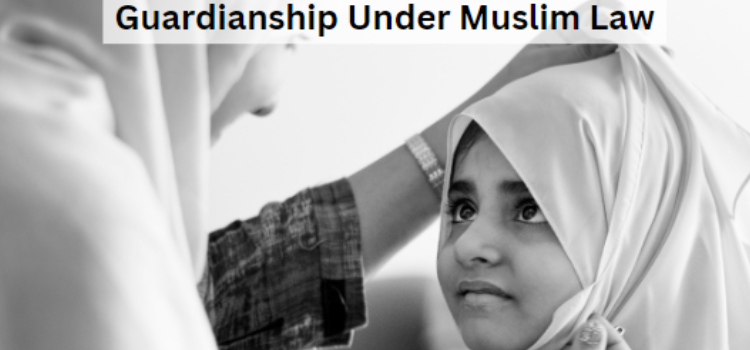Muslim Laws Lawyers
Muslim Laws
|
The importance of Muslim law can be estimated from the fact that it is applicable to some 15 crore Muslims in India, 12 crores in Pakistan and 13 crores in Bangladesh. Around one-sixth of the world’s population follow Muslim Laws. Law and religion in Islam are so intimately connected and are intertwined that they cannot be easily separated. The two streams of Shariah and Fiqh flow in single channel. |
Sources of Muslim Laws
|
The legal luminaries and wisemen have considered the following as the sources for Muslim Laws; · Koran: The holy book whose every word is to eb considered as that of God communicated to Prophet Muhammad. It is not a code of law but to genesis of all that a Muslims has to follow and obey. · Hadith or Sunnah (Tradition): It is the tradition which is being followed and practiced since time immemorial and provide guiding principle to the followers of Muslim laws. It is of three types namely; Hadith Mutwatir (Continuous), Hadith Mashhoor (Wel Known) and Hadith Ahad (Isolated) · Ijma: Ijma means Consensus or Opinions and has been defined as the agreement of the Muslim jurisconsults in any particular age on a juridical rule. · Qiyas: It means Analogy and is a process of deduction by which a law of a particular case is applied to another unprecedented case covered under the same reason and situations. · Equity and the absolute good: - Istihsan: It means Preference - Al-masalih al-mursalah: It means Public Interest - Istidlal and Istishab: They mean Deduction and Permanency · Ijtihad and Taqlid: It means interpretation and is the logic is all build around the interpretation of the law |
Marriage (Nikah) in Muslim Laws
|
To understand marriage in Muslim laws we can cite the judgement of the Mahmood J of Allahabad High Court, which was based on the interpretation of the Hanafi Law; Marriage among Muhammadans is not a sacrament, purely a civil contract. And though it is solemnized generally with recitation of verses from the Koran, yet the Muhammadan law does not positively prescribe ay service peculiar to the occasion. That it is a civil contract is manifest from the various ways and circumstances in and under which marriages are contracted and presumed to have been contracted.
Formalities for a valid marriage, Nikah There are strict formalities to be followed and any particular ceremony to be performed but the following conditions are necessary for a valid nikah; · Offer on the part of one party to the marriage · Acceptance by the other party · Presence of tow witnesses where the parties are Hanafis; no witnesses required if parties are Shias · The words with which the marriage is contracted must be clear and unambiguous · The proposal and acceptance must both be expressed in one and the same meeting
|
Dower, Mehr in Muslim Laws
|
Dower, under the Muhammadan Law, is a sum of money or other property promised by the husband to be paid or delivered to the wife in consideration of the marriage, and even where no dower is expressly fixed or mentioned at the marriage ceremony, the law confers the right of dower upon wife as a necessary effect of marriage. The payment of dower or meher is enjoined by the law merely as token of respect for its object (the woman). There are two kinds of dower namely specified and unspecified. There is no minimum or maximum limit to be fixed for dower but some have different opinion on that. |
Divorce or Talaq under Muslim Law
|
Dissolution of marriage in Muslims can happen in three broad ways namely a) due to death of either husband or wife, b) by the act of the parties and c) by judicial process. a) By the death of husband or wife: It is clear and natural that with the death of wife or husband the marriage tie comes to an end. When the wife dies the husband may remarry immediately, but in case of husband’s death, widow has to wait till the expiry of iddat (4 months and 10 days, or if pregnant till delivery) b) By the Act of Parties: When the parties can act and divorce or render talaq to other party. This is subdivided into three subcategories; · By Husband (Talak, Ila, Zihar) · By wife (Talak-e-Tafwid) · By mutual Consent (Khula, Mubarat) {Talak can be categorised into Talak-us-Sunnat -Talak Ahsan and Talak Hasan/ and Talak -ul-Biddat} Talak Ahsan: In this form of Talaq the husband repudiates the marriage by a single pronouncement in a period of tuhr (purity, i.e., when the wife is free from her menstrual courses), during which he has not had intercourse with her, and then leaves her to the observances of iddat. Talak Hasan: In Talak Hasan, the husband successively pronounces divorce three times during consecutive periods of purity (tuhr). Talak -ul-Biddat : Here the husband does not follow the approved form of talak.ie., Talak-us-sunnat and neither pays any attention to the period of purity. Ila: When a person vows that he will not have not have sexual intercourse with his wife and abstains from it for four months, the divorce is affected. Zihar: When the husband starts comparing his wife with his mother or any female relation within the prohibited degrees. Khula: When the offer for mutual divorce comes from the wife Mubarat: When the offer for mutual divorce comes from both sides c) By Judicial Process: There are two judicial process to dissolve a Muslim marriage namely; Lian (Mutual imprecation): The wife can sue for divorce on the ground that husband has falsely charged her with adultery. Faskh (Judicial annulment): On an application by wife under Section 2 of Dissolution of Muslim Marriage Act, 1939, the Kazi can dissolve a marriage on a valid ground.
|
Maintenance under Muslim Laws
|
Maintenance is categorized into three groups under the Muslim traditions; Hedaya – All those things which are necessary to the support of life, such as food, clothes and lodging. Durr-ul-Mukhtar – Nafaqa literally means that which a man spends on his children; in law it means feeding, clothing and lodging. Fatawa-i-alamgiri – Maintenance comprehends food, raiment and lodging though in common parlance it is limited to the first. In Islam there are four categories of person who are entitled to maintenance namely- Wife, Descendants, Ascendants, Other relations. Traditionally the men are supposed to maintain their families and wives and dependent relatives but there are no strict laws to which the women could depend upon in case of penury and neglect. Muslim Women (Protection of Rights on Divorce) Act, 1986 provides some provisions wherein a divorced Muslim woman can file an application to a Magistrate for maintenance and seek it from all those who can inherit her property after death including her divorced husband. She can even file a case for maintenance under Section 125 of CrPC for maintenance but it is to be kept in mind that once filed under Section 125 then she cannot file an application under MW Act. |
Which laws govern the Muslims in India
|
The Muslim Personal Law (Shariat) Application act, 1937: The Section 2 of this Act is the most prominent one Section 2. Application of Personal Law to Muslims. —Notwithstanding any custom or usage to the contrary, in all questions (save questions relating to agricultural land) regarding intestate succession, special property of females, including personal properly inherited or obtained under contract or gift or any other provision of Personal Law. marriage, dissolution of marriage, including talaq, ila, zihar, lian, khula and mubaraat, maintenance, dower, guardianship, gifts, trusts and trust properties, and wakfs (other than charities and charitable institutions and charitable and religious endowments) the rule of decision in cases where the parties are Muslims shall be the Muslim Personal Law (Shariat). Dissolution of Muslim Marriages Act, 1939: This act consolidates the provision and allows a Muslim wife to have dissolution of marriage by judicial decree. Muslim Women (Protection of Rights on Divorce) Act, 1986: A divorced Muslim woman can move the court under this Act to seek maintenance from her husband and relatives for herself and her children and the Magistrate shall make appropriate order on an application made to him under the law as per the provision. Wakf Act, 1995: This Act provides for the establishment of a Board of Wakfs for each state |
Wakf
|
The doctrine of Wakf is interwoven with the entire religious life and social economy of Muslims and it has developed as an institution with Islam. The word Wakf means “Detention” and connotes tying up of property in perpetuity. According to Abu Yusuf, Wakf is the detention of a thing in the implied ownership of Almighty God, in such a way that its profits my be applied for the benefit of human beings, and the detention when once made, is absolute, sot that the thing dedicated can neither be sold, nor given, nor inherited. There are three kinds of Wakfs – Public Wakf – Those which are dedicated to the public at large having no restriction of any kind regarding its use. Quasi-Public Wakf – Those which are partly public and partly to provide for the benefit of a particular individual or class of individuals which may be settlor’s family Private Wakf – Those which are for the benefit of private individuals, including settlor’s family or relations. Such wakf is terms as wakf-alal-aulad.
Legal Characteristics of Wakf There are three major and very important legal incidents of wakf: Irrevocability, perpetuity and inalienability. Once a wakf has been created then it continues to retain such character which cannot be extinguished by any act of the Mutawalli. A Wakf is created for ever and remain in existence for perpetuity. The wakf property belongs to God and no human can alienate it for his own purpose.
Essentials of Valid Wakf a) There must be a clear intention on the part of wakif to create the wakf b) Wakif must declare his intention, either orally or in writing c) Wakif must be the owner of the property to be dedicated d) The wakf must be perpetual e) The principles of the wakf should not be in conflict with eh Islamic principles f) The Wakif must be of sound mind and major and a Muslim g) Wakf must not be contingent or conditional
|
Gift (Hiba) and Will (Wasiyat)
|
Hiba Muslim law allows a man to give away the whole of his property during his lifetime. Gift or Hiba is a transfer of property, made immediately, and without any exchange, by one person to another, and accepted by or on behalf of the latter. The law of gift being regarded as a part of the law of contract, following elements are prescribed for Hiba; Ijab- tender, Qabul-acceptance, and Qabza- possession.
Wasiyat The legal declaration of the intentions of a Muslim with respect to his property, which he desires to be carried into effect after his death. The wasiyat can be made either orally or in writing. A Muslim who is a major and is of sound mind can make a will. Interestingly no Muslim an bequeath more than 1/3 of his estate and the one-third is arrived at after deducting any debt and funeral expenses. |
Commonly asked questions related to Muslim Laws
|
· Can a widow retain possession of her husband’s estate in lieu of her unpaid dower? Yes, the courts have held that as long as her dower remain unpaid, she can hold on to the estate of the deceased husband but cannot alienate it. · Who can act as a guardian under Muslim Law? Anyone who has attained the age of 18 years and is sane, can act as a guardian according to the Muslim Laws. · Can a woman ask for divorce or talak under Muslim laws? Yes, a Muslim woman/wife can ask for talak under the Muslim laws for a valid reasons and file for a case under Section 2 of Dissolution of Muslim Marriage Act, 1939. · Can a Muslim wife file case for maintenance under Section 125 of CrPC? Yes, a Muslim wife can file a case for maintenance under Section 125 of CrPC and Courts have allowed maintenance under the said Section to such women. · Who can create Wakf? A major person of sound mind can validly create a wakf, provided there is no fraud, undue influence, or coercion. · Can a husband gift (hiba) a property under Muslim laws to his wife? Yes, a husband is allowed to make a gift to his wife and can do so. · Who can make gifts? Every Muslim male or female who is major and sane may make a gift, provided he or she is not subject to any force or fraud. A married Muslim female can also make a gift. · Can a wasiyat once made be revoked? Yes, a wasiyat once made be revoked by the testator- the maker of the will.
|
Some important judgements related to Muslim Laws
|
Bai Tahira v. Ali Hussain Supreme Court regarded Mahr as the sum payable under the customary or personal law on divorce as rereferred to in Section 127(3)(b) CrPC. Justice Krishna Iyer said: “Payment of Mahr money as a customary discharge, is within the cognizance of that provision”.
Moonshee Buzul Raheem v. Luteefut-oon-Nissa It was observed that a divorce by Khula is at once complete from the moment when the husband repudiates the wife. There is no period during which such a divorce can be repudiated.
Mohd. Ahmed Khan v. Shah Bano Begum The Supreme Court had commented in this case that the provision contained in Section 127(3)(b) of CrPC may have been introduced because of the misconception that dower s an amount payable on divorce. But that cannot convert an amount payable as mark of respect for the wife into an amount payable on divorce. The sum settled by way of Mahr is generally expected to take care of the ordinary requirement of the wife, during the marriage and after. But these provisions of Muslim Personal laws do not envisage cases in which the wife is not able to maintain herself after the divorce. Section 125 envisages such situations and if she is unable to maintain herself, she can take recourse to Section 125.
|
Recommended Reads
|
https://www.vidhikarya.com/legal-blog/triple-talak-and-the-newly-formulated-laws |
Search Result : Expert Muslim laws Lawyers
Consult Expert Muslim laws Lawyers in India
Advocate Abhimanyu Shandilya
Advocate Anik
Bangalore
Advocate Prabhakara S K Shetty
Bangalore
Advocate Rohit Dalmia
Mumbai suburban













